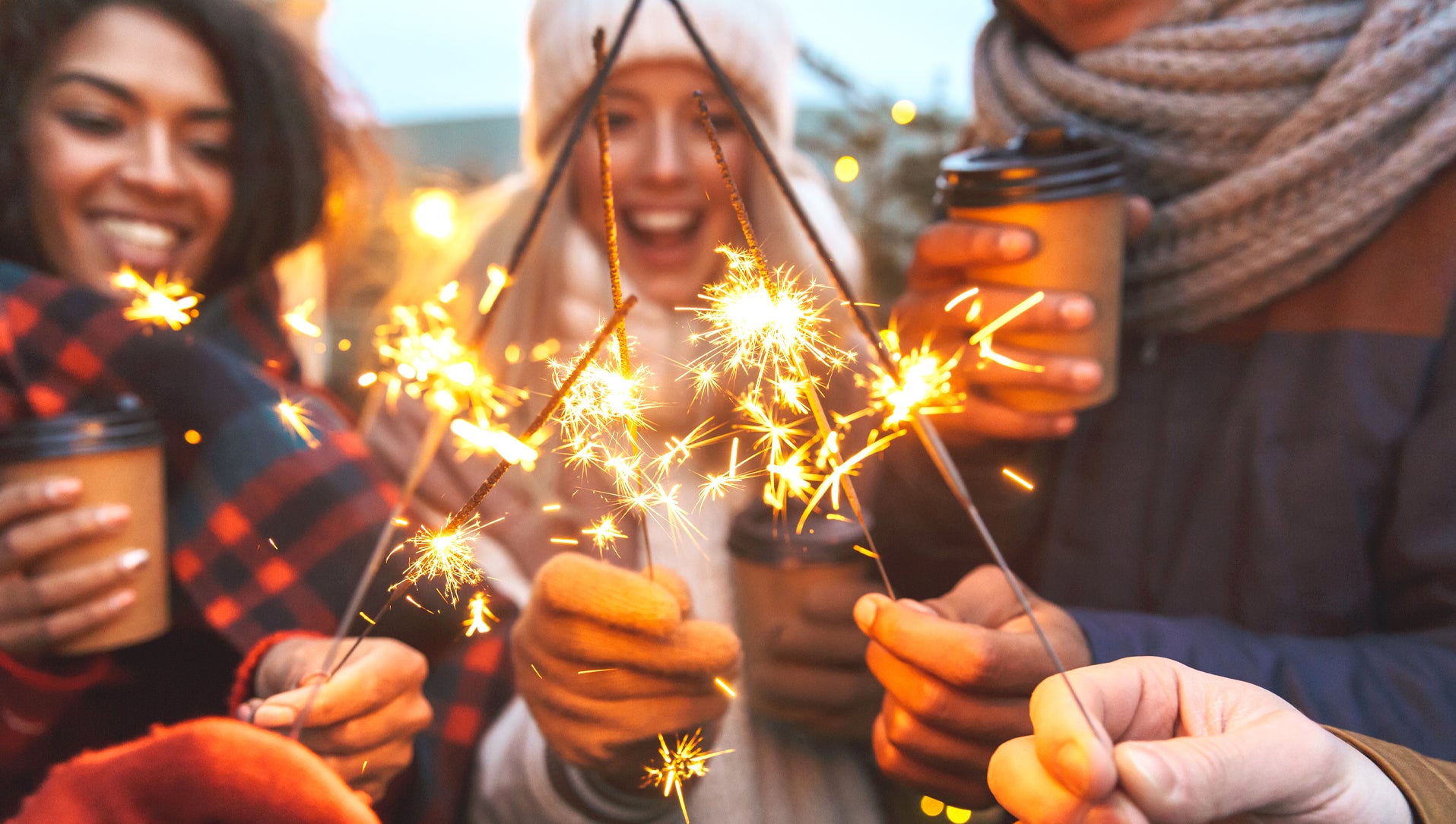10 New Year's Traditions Celebrated Around the World
•Posted on December 31 2021

It's time yet again for another new year! Tonight we'll all hear fireworks going off in our neighborhoods, towns, and cities, we'll drink champagne to toast the new year, and we'll stay up until midnight to watch the ball drop (after we put the little ones to bed, that is). But in other countries, they might be celebrating a little differently, eating special meals or even breaking dishware!
There are so many ways to celebrate, and so many things to learn. Turn this near year's eve into a family learning lesson by reading about the different ways that families celebrate the new year all around the world.
Spain
In Spain, it is traditional to eat grapes at midnight… 12 twelve to be exact, each one representing a stroke of the clock at midnight when it becomes the new year.
Denmark
If you're in Denmark on new year's eve and suddenly everyone starts throwing plates at each other's doors, don't be alarmed! This tradition is meant to bring good luck (although some people say it also acts as a way to get out aggression, and why not leave old wounds behind in the new year??) The Danish believe the more broken dishes on their doorsteps, the better! The Danish also jump off of chairs together to signify jumping into the new year.
Japan
In Japan, everyone has a meal of soba noodles for the new year. Some say that the noodles' long shape represents longevity. Others say that because the buckwheat of which the soba noodles are made is so resilient, eating them on new year's signifies strength. While the people of Japan are eating their soba noodles, the Buddhist monks are literally ringing in the new year with 108 bells. They ring the 108th bell at the stroke of midnight. This number is meant to represent the number of evil desires of each person. Ringing the bells on new year's eve cleanses the population of these desires.
Ecuador
This South American country likes to celebrate the new year by burning effigies. If you're there during new year's, you might see caricatures of famous politicians or cultural icons around the streets. Then at night, the Ecuadorians light them on fire!
Russia
In Russia, people like to welcome the new year with a wish. They write down their wish on a piece of paper, then burn it with a candle. Personally, I would stop right there, but not the Russians! They then drink their burnt wishes in a glass of champagne!
Brazil
Brazil has a gorgeous tradition of floating candles and white flowers on the sea. Traditionally this was done as an offering to the water deity Yemoja. In return for these gifts, Yemoja will bring luck and good fortune.
Chile
In Chile, people don't just celebrate with their living friends and family, they celebrate with their departed ones as well. On new year's eve, mass is held in cemeteries rather than churches so that Chilean families can include their departed loved ones in the festivities.
Philippines
In these tropical islands, people consider the new year as a chance to get lucky financially. During the new year, you might find circle shapes all around the country, which signify coins. Philippinos might wear polka dots for the same reason. They also eat twelve round fruits for luck, signifying the upcoming twelve months of the new year.
Scotland
Scotland actually has a specific name for the day before new year's - hogmanay. On Hogmanay, the most important traditional ceremony is the first footing. Whoever is the first one to walk through the threshold of a home should bring with them gifts for good luck. Some even say that the first person who walks across the threshold should be dark-haired. This is because in the time of Viking invasions, the last thing you wanted to see was a fair-haired man at your doorstep!
Greece
In Greece they have a tradition of eating a sweet bread at midnight called vasilopita in honor of St Basil. The bread is cut in slices, setting one aside for the saint and one aside for those in need. Then the family is served, starting with the eldest member. A coin is baked into the bread, and whoever gets the slice with the coin is said to have good fortune for the rest of the year.
Happy new year everyone!